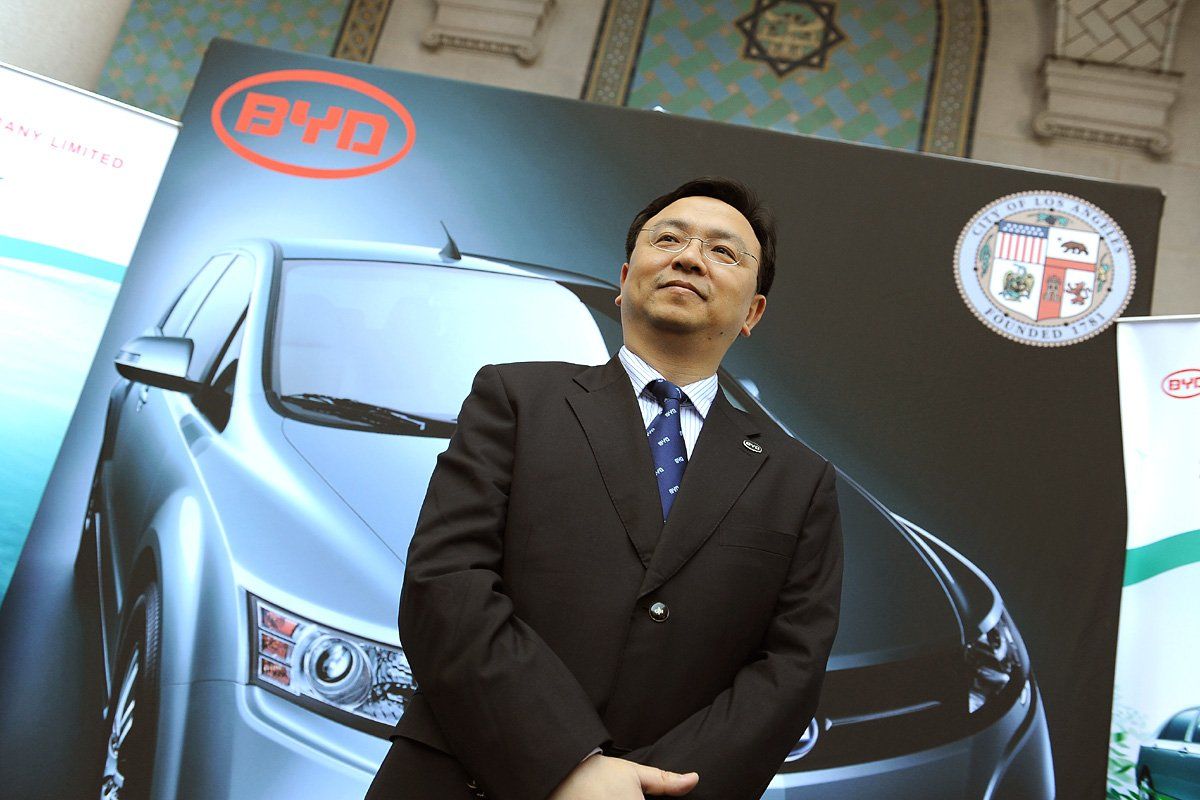
Drinkable battery acid? Yes, it's true. In the tough race to develop the world's best electric-car battery, Chinese billionaire Wang Chuanfu, founder of the automaker BYD, is not above a little showmanship. In front of visiting journalists, he eagerly downs a glass of nontoxic electrolyte solution, a concoction being used in an experimental battery that will be 100 percent recyclable.
This stuff may taste all right, but whether it will power the next generation of electric cars is still up for grabs. Anticipation for the first mass-market electric plug-ins is high (the Chevy Volt and the new fully electric plug-in Toyota Prius will debut later this fall). But the battery technology powering these and other electric vehicles is still downright medieval. Based on lithium-ion technology that's been around since the early '90s, today's batteries are still expensive and puny, costing as much as a third of the car itself, with a range just adequate for an average commute in the U.S. Still, the success of the hybrid Prius, which has become a status car in places like California, has galvanized a new push for battery research and development over the last few years. The goal is to make a product that's cheap (analysts say bringing down the average cost from $16,000 to $6,000 per battery could result in a possible 30 percent of car owners switching to electric). This potential market of new green drivers, as well as government support like President Obama's $2.4 billion investment into battery research, has resulted in a glut of companies pouring more resources into battery R&D, from MIT startup A123 and New York–based Ener1, to giants like the U.S.-French joint venture Johnson Controls-Saft, the largest manufacturer of standard acid car batteries. On the other side of the race are the titans from Asia.
Alliances are already being drawn up. The Americans have inked production deals with big Western automakers such as GM and BMW, while the Asians are cozying up to Toyota, Nissan, and Honda, which have a head start in hybrids.
BYD, with its big war chest and state backing, is among the strongest contenders to build the world's best battery. The bulk of its $4 billion in annual revenue comes from manufacturing throwaway cell-phone handsets and economy cars, but it is breaking out of the Chinese mold of simply relying on cheap labor as a competitive advantage. The company employs more than 10,000 university-educated engineers who work on R&D. In 2008 it introduced the world's first commercial electric plug-in. BYD also recently claimed, although it is impossible to verify independently, that it has achieved a breakthrough in the development of lithium-ion ferrous phosphate, which would provide a faster-charging and longer-lasting battery. Billionaire investor Warren Buffett, at least, seems sold on the company's potential; he recently took a 10 percent stake in BYD.
But the U.S. still holds an advantage in basic research. The Argonne National Laboratory in Illinois is churning out lots of basic science patents that will drive the next generation of batteries. Scientists at Stanford discovered last year that replacing the graphite electrodes in lithium batteries with silicon nanotubes can multiply their storage capacity 10-fold. The Palo Alto, California, startup Better Place sidesteps the range-limitation problem by setting up networks of battery-switching stations in test markets like Israel and Hawaii to allow drivers to pick up a new battery and drive away within minutes. At least they don't have to drink the stuff, too.
Uncommon Knowledge
Newsweek is committed to challenging conventional wisdom and finding connections in the search for common ground.
Newsweek is committed to challenging conventional wisdom and finding connections in the search for common ground.





